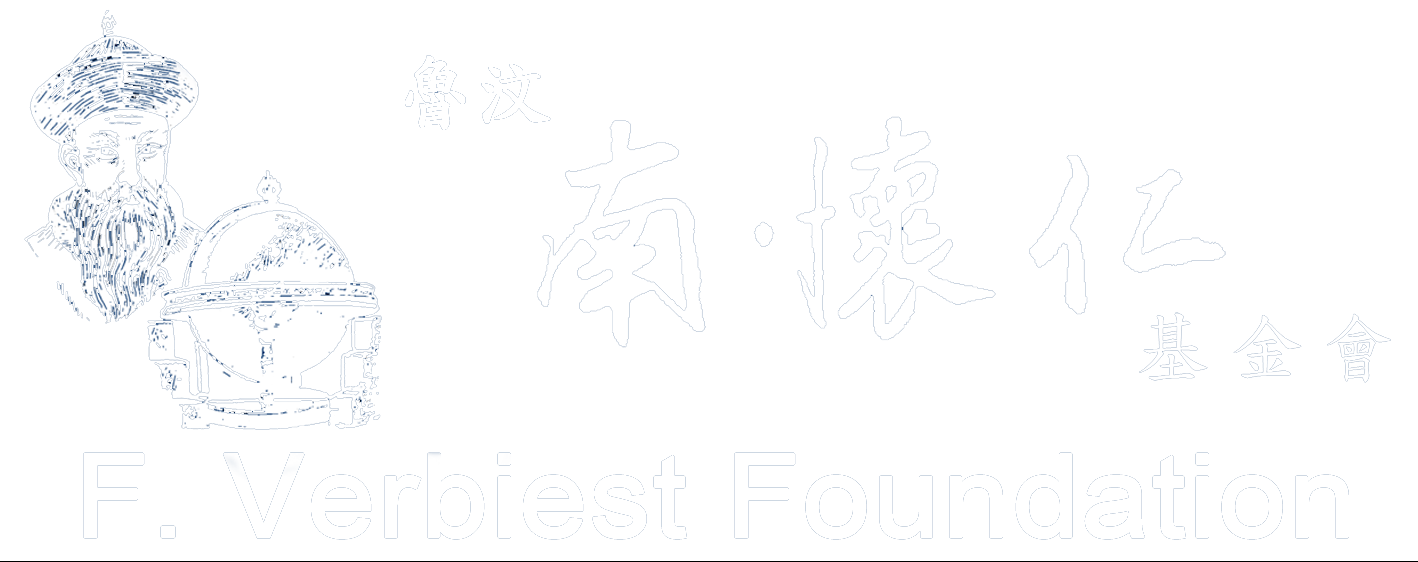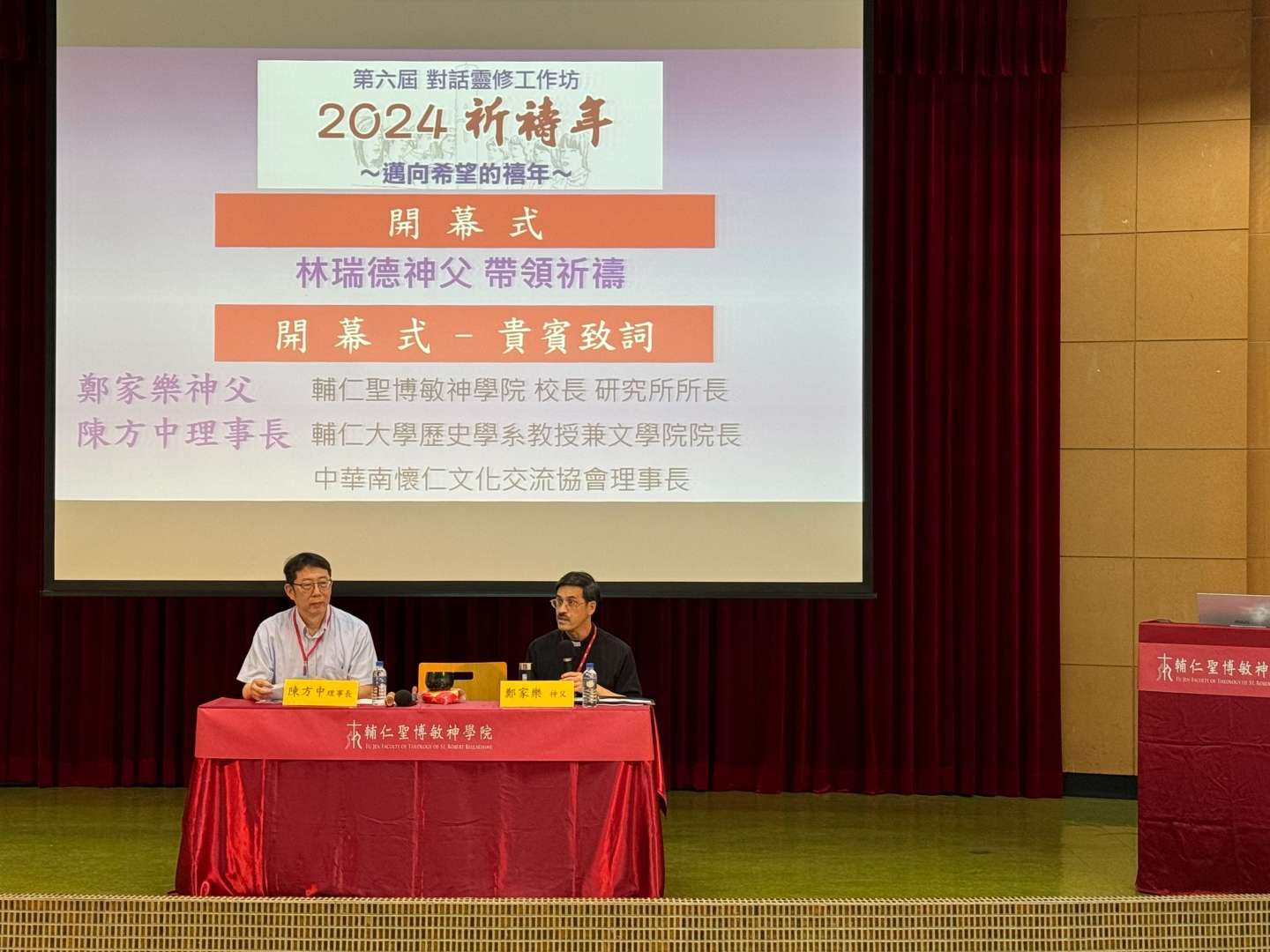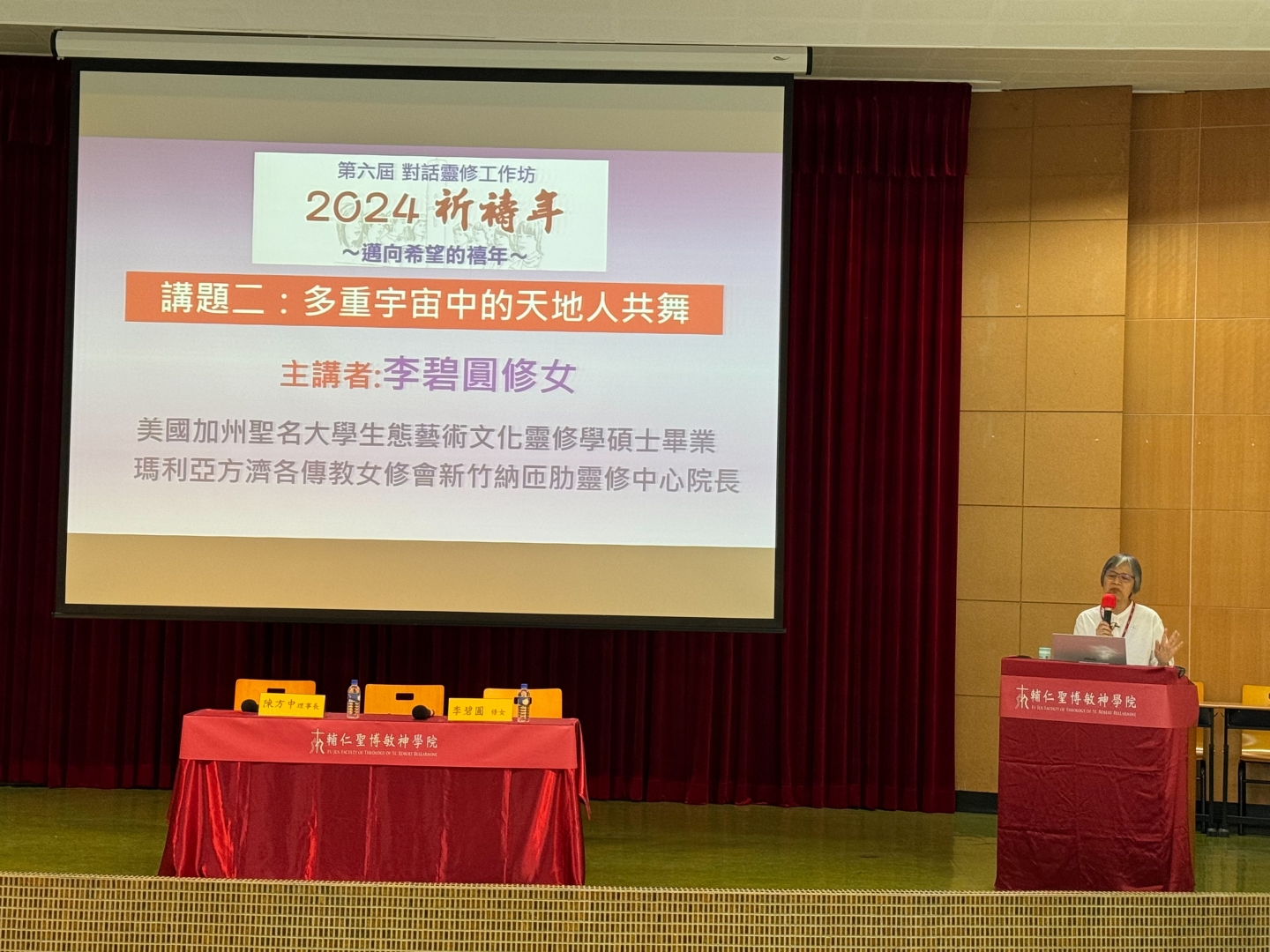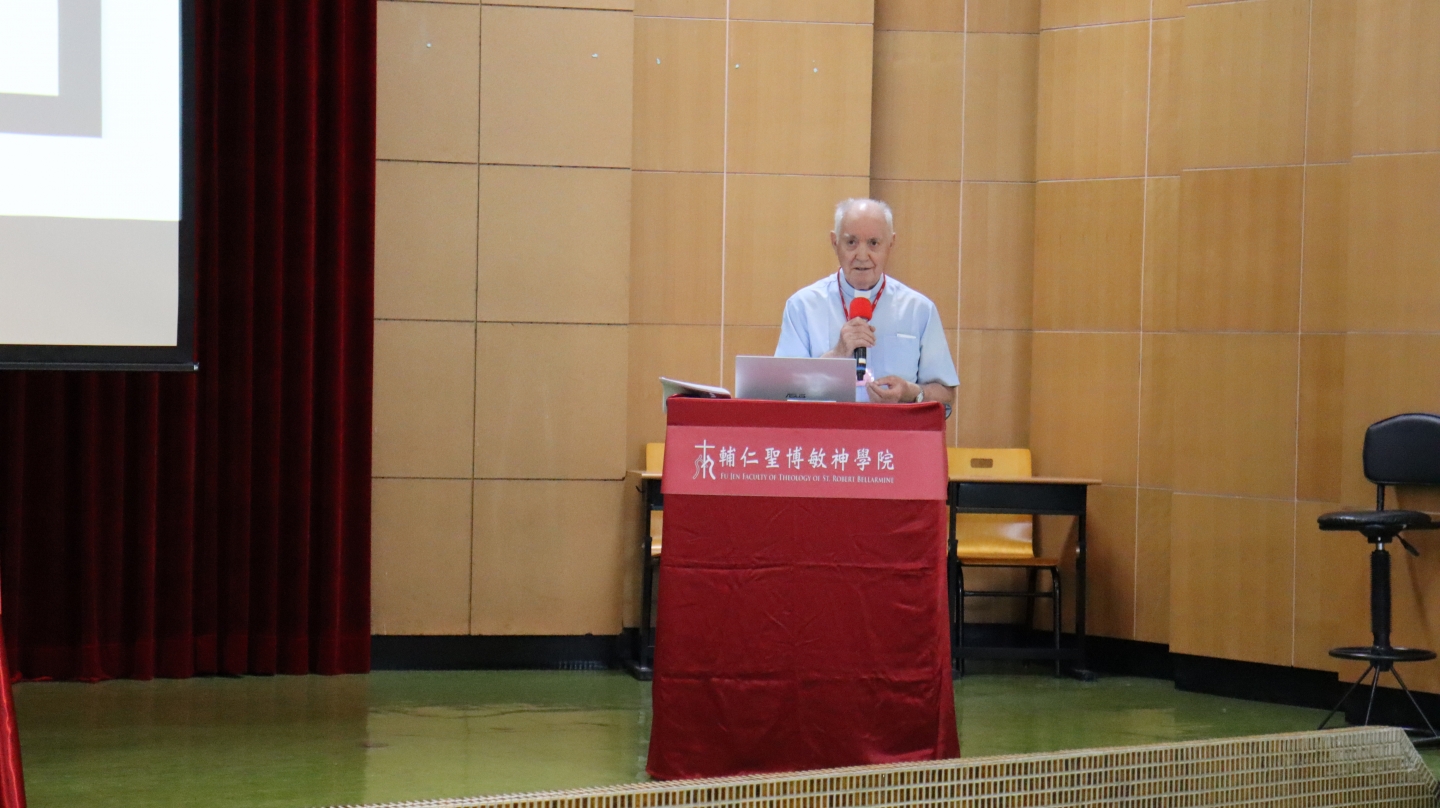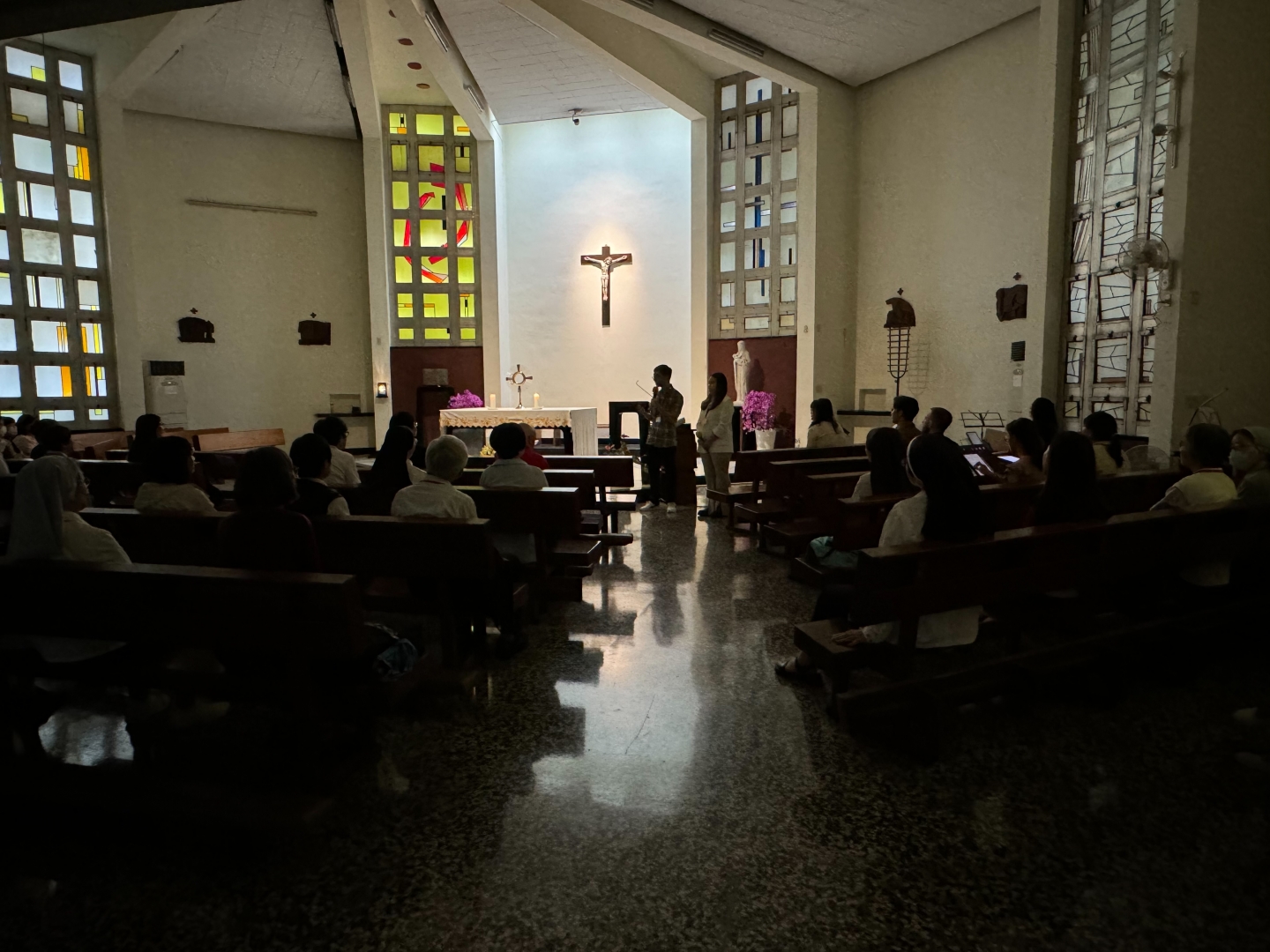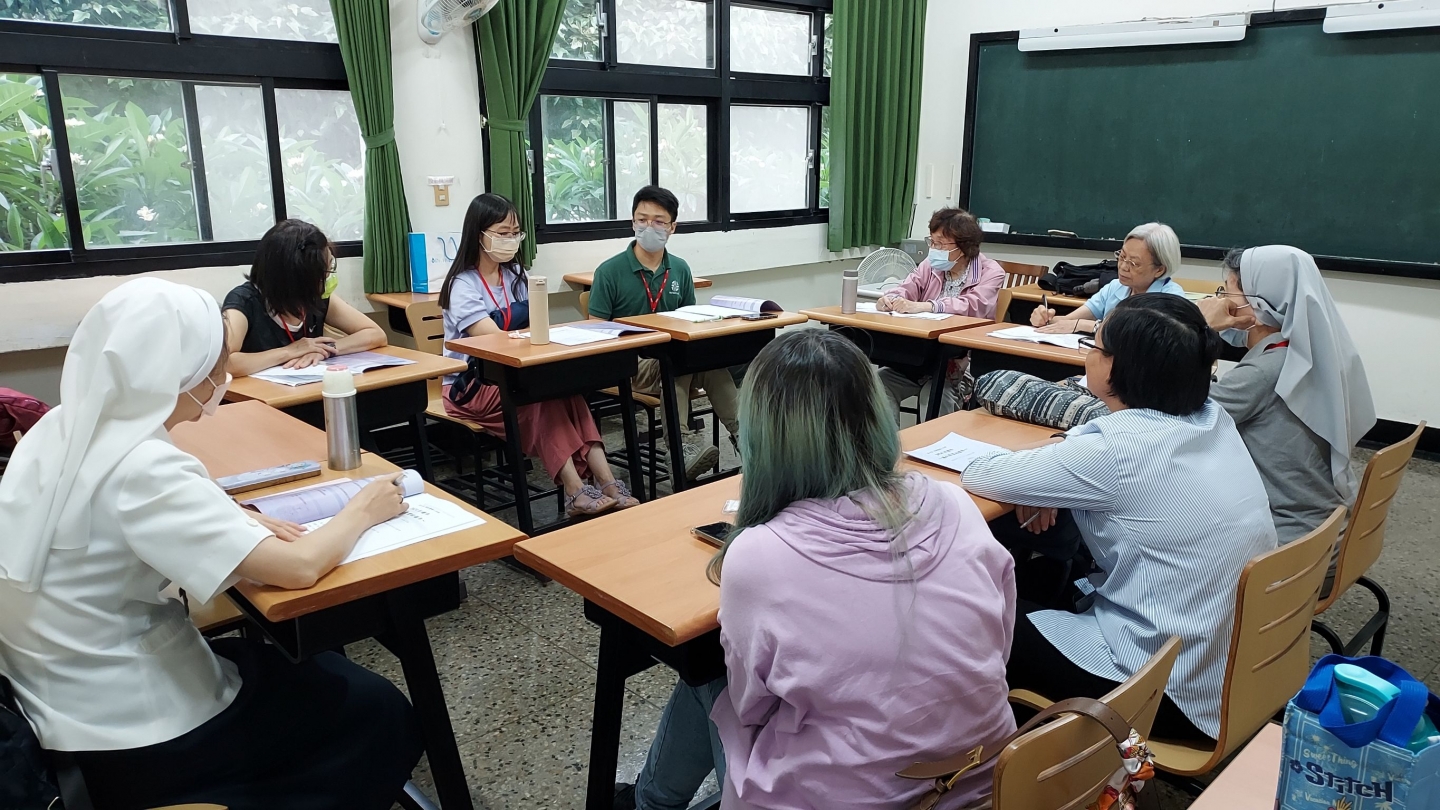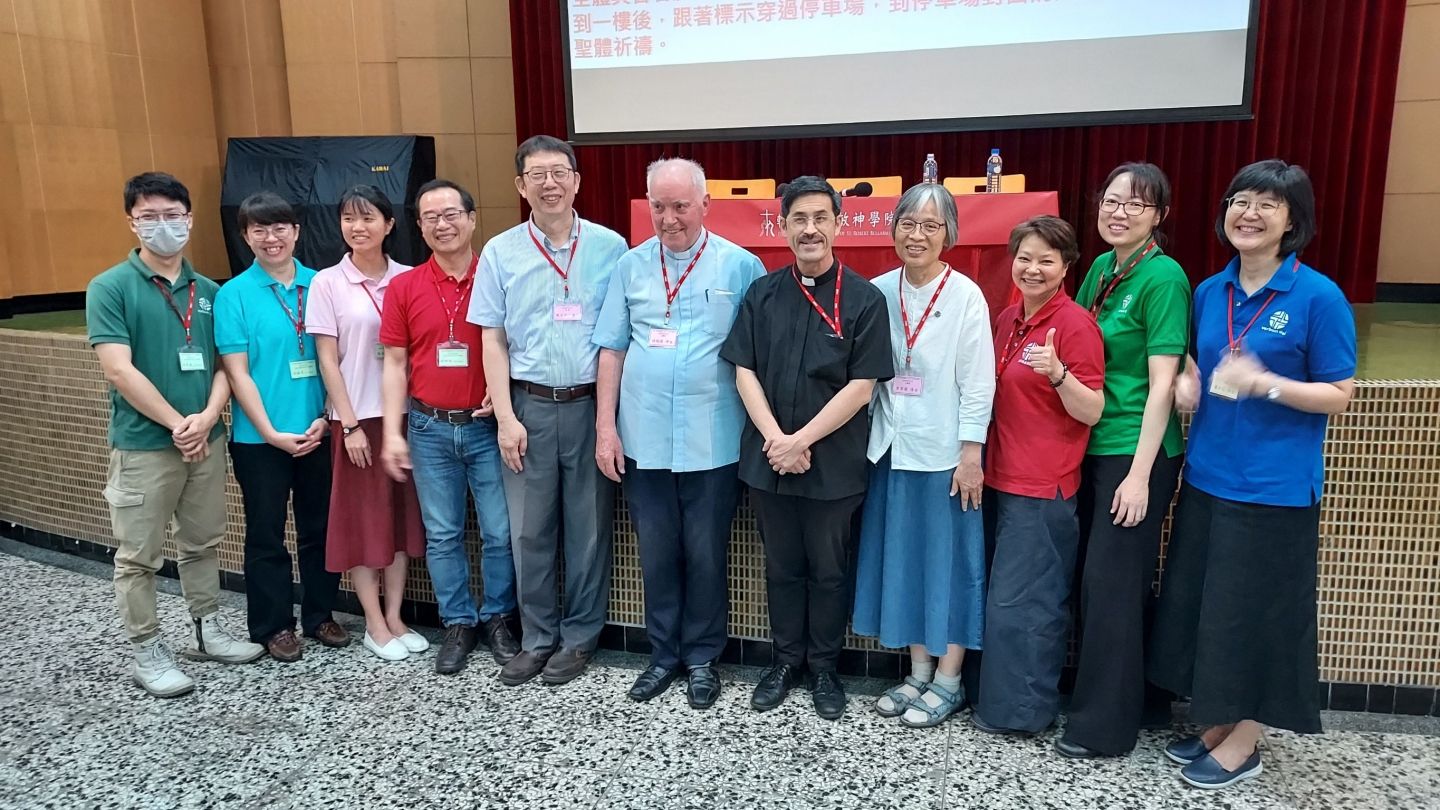When announcing the Jubilee Year 2025, Pope Francis also invited the whole Church to get ready so that Christians may fully enjoy the rich pastoral implications of the Holy Year. For this reason, he chose 2024 as a 'Year of Prayer': “From now on I am happy to think that the year preceding the Jubilee event, 2024, will be dedicated to a great ‘symphony’ of prayer. First of all, to recover the desire to be in the presence of the Lord, to listen to him and adore him.”
Over the past few years, the epidemic has affected the world, bringing suffering and death, doubt and fear, restrictions on personal and social freedoms, and limitations on religious gatherings and liturgy. In addition, the growing number of victims of war and poverty has made many people increasingly pessimistic about the possibility of world peace and social justice. Instead, the Pope explained, "All this will be possible if we are able to recover a sense of universal fraternity, if we do not close our eyes to the tragedy of rampant poverty that prevents millions of men, women, young people and children from living in a humanly dignified way.” He chose 'Pilgrims of Hope' as the motto for the Jubilee Year: "We must fan the flame of hope that has been given us and help everyone to gain new strength and certainty by looking to the future with an open spirit, a trusting heart and far-sighted vision." In order to welcome the Jubilee Year, to make the best of the period of grace and to experience the power of God's hope, the Church everywhere must promote the centrality of individual and community prayer.
Christians not only have no doubts about the importance of prayer, but are also eager to improve the ways and quality of their prayer. In order to learn more about how to help the prayer life and mission of the Church, Fu Jen St. Robert Bellarmine Seminary, and Chinese Ferdinand Verbiest Cultural Exchange Association, jointly held the sixth Workshop on Spirituality of Dialogue: “The Year of Prayer 2024 ~ Towards the Jubilee Year of Hope” on June 1st, 2024 in the Seminary’s auditorium. The workshop set to explore the meaning and outlook of the Year of Prayer, in the light of the richness of the Chinese Church's spiritual heritage and the present pastoral context.
“Starting from 2021, Fu Jen St. Robert Bellarmine Seminary, and Chinese Ferdinand Verbiest Cultural Exchange Association have jointly organized four consecutive years of “Spirituality of Dialogue” workshops, starting from October 2, 2021 with “Fratelli Tutti: A call to love that transcends the barriers of geography and distance,” then May 28, 2022 with “For a Synodal Church: Communion, Participation and Mission,” and finally May 20, 2023 with “Transmission and Conversation of Family faith” as topics. “For a Synodal Church: Communion, Participation and Mission” invited us to realize a synodal church through communion, participation and mission,” and “Transmission and Conversation of Family faith” stressed the importance of a solid Christian family faith life for the development of a strong personal faith. As in former editions, the number of applicants and participants for this year workshop, “The Year of Prayer 2024 - Towards the Jubilee Year of Hope”, remained high. We would like to express our special thanks to the “Regional Association of Major Religious Superiors of Men and Women in Taiwan” for their support as co-organizer and for its cordial invitation to all the Religious Congregations, parishes and Catholics to join us in the celebration of the Year of Prayer 2024.
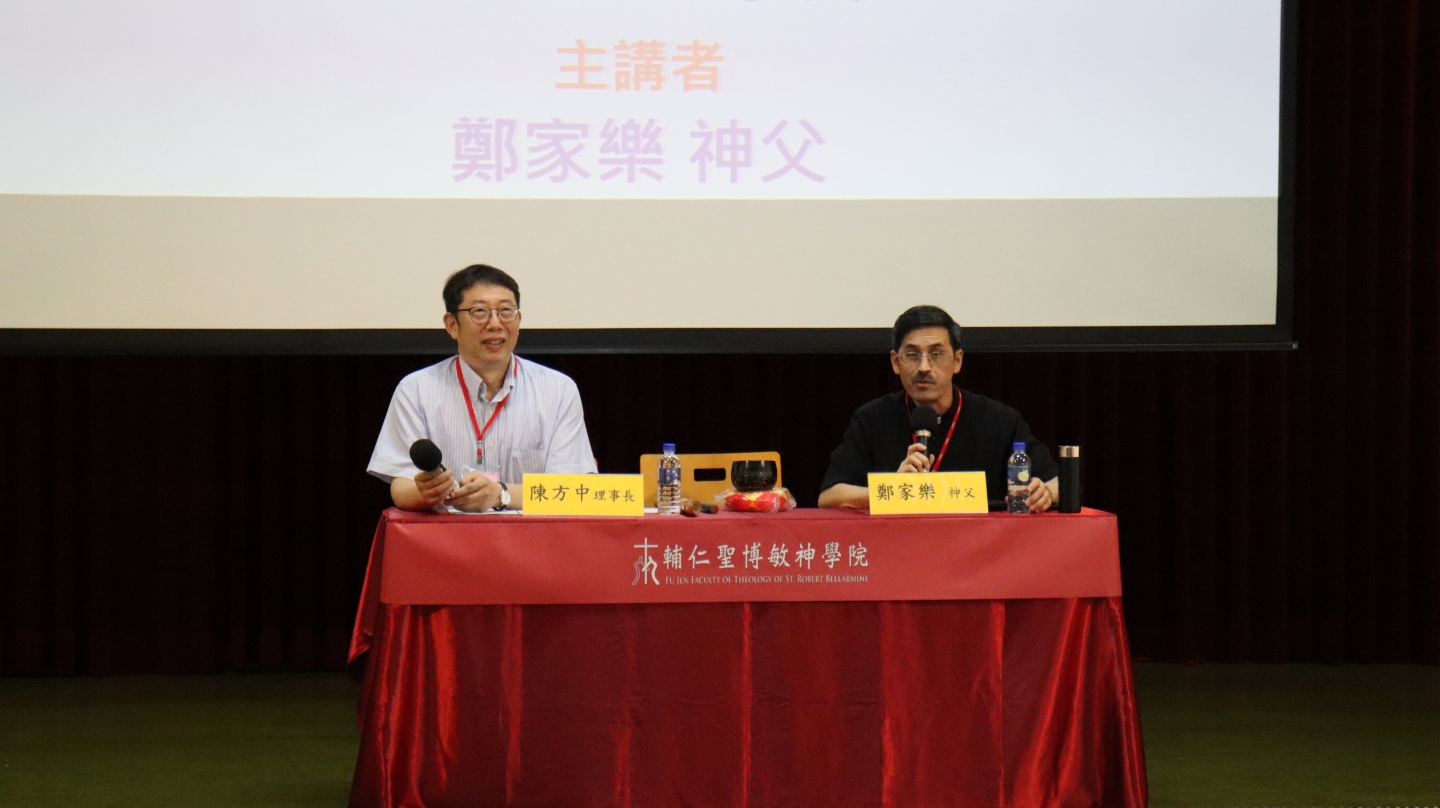 The morning session of the Workshop began with an opening prayer led by Fr. Frans De Ridder, followed by speeches by Fr. Jeffrey Chang SJ, (Dean of St. Robert Bellarmine Faculty of Theology and Director of Master studies), and Mr. Chen Fangzhong, Chairman of the Chinese Ferdinand Verbiest Cultural Exchange Association. The first session, delivered by Fr. Jeffrey GarLok Chang, was entitled “Towards a Jubilee Year of Hope”. It went into explaining the core meaning of Pope Francis' proclamation of 2024 as the Year of Prayer in preparation for the Jubilee Year of 2025. Starting from the first Jubilee Year, also known as Holy Year, proclaimed by Pope Bonifacius VIII in 1300 Fr. Chang asked “What is the Jubilee Year?” He then explained that the frequency of celebrations had changed over the years: from a 50-year cycle in the 14th century to a 25-year cycle in the 20th century. There are also “special” jubilees, such as the Special Jubilee of Mercy in 2015, the 50th anniversary of the closing of the Second Vatican Council. Jubilee years can be celebrated through various ways, like pilgrimages, Holy Doors, celebration of reconciliation, granting pardons, doing the profession of faith, liturgical celebrations and prayers, and so on.
The morning session of the Workshop began with an opening prayer led by Fr. Frans De Ridder, followed by speeches by Fr. Jeffrey Chang SJ, (Dean of St. Robert Bellarmine Faculty of Theology and Director of Master studies), and Mr. Chen Fangzhong, Chairman of the Chinese Ferdinand Verbiest Cultural Exchange Association. The first session, delivered by Fr. Jeffrey GarLok Chang, was entitled “Towards a Jubilee Year of Hope”. It went into explaining the core meaning of Pope Francis' proclamation of 2024 as the Year of Prayer in preparation for the Jubilee Year of 2025. Starting from the first Jubilee Year, also known as Holy Year, proclaimed by Pope Bonifacius VIII in 1300 Fr. Chang asked “What is the Jubilee Year?” He then explained that the frequency of celebrations had changed over the years: from a 50-year cycle in the 14th century to a 25-year cycle in the 20th century. There are also “special” jubilees, such as the Special Jubilee of Mercy in 2015, the 50th anniversary of the closing of the Second Vatican Council. Jubilee years can be celebrated through various ways, like pilgrimages, Holy Doors, celebration of reconciliation, granting pardons, doing the profession of faith, liturgical celebrations and prayers, and so on.
Fr. Chang also mentioned that, according to the will of Pope Francis, the first of the two years of preparation for the Jubilee Year was devoted to the rediscovery of the Doctrine of the Vatican II Council, while the second year was devoted to prayer. On October 11, 2022, the Pope opened the Year of the Ecumenical Council with a solemn thanksgiving service on the occasion of the 60th Anniversary of the Second Vatican Council. The Pope called on the Church throughout the world to reflect deeply on the paths and moments of the four Constitutions of the Council: The Constitution on the Sacred Liturgy, the Constitution on Divine Revelation, the Constitution on the Church, and the Constitution on the Church in the Modern World. Pope Francis from May 6, 2020 to June 16, 2021, in 38 articles presented the Catechism on Prayer. The Holy See has also published a series of prayer journals to stress, once again, the deep relationship with the Lord through the many forms of prayer within the rich Catholic tradition.
Christians not only have no doubts about the importance of prayer, but are also eager to improve the ways and quality of their prayer. In order to learn more about how to help the prayer life and mission of the Church, Fu Jen St. Robert Bellarmine Seminary, and Chinese Ferdinand Verbiest Cultural Exchange Association, jointly held the sixth Workshop on Spirituality of Dialogue: “The Year of Prayer 2024 ~ Towards the Jubilee Year of Hope” on June 1st, 2024 in the Seminary’s auditorium. The workshop set to explore the meaning and outlook of the Year of Prayer, in the light of the richness of the Chinese Church's spiritual heritage and the present pastoral context.
“Starting from 2021, Fu Jen St. Robert Bellarmine Seminary, and Chinese Ferdinand Verbiest Cultural Exchange Association have jointly organized four consecutive years of “Spirituality of Dialogue” workshops, starting from October 2, 2021 with “Fratelli Tutti: A call to love that transcends the barriers of geography and distance,” then May 28, 2022 with “For a Synodal Church: Communion, Participation and Mission,” and finally May 20, 2023 with “Transmission and Conversation of Family faith” as topics. “For a Synodal Church: Communion, Participation and Mission” invited us to realize a synodal church through communion, participation and mission,” and “Transmission and Conversation of Family faith” stressed the importance of a solid Christian family faith life for the development of a strong personal faith. As in former editions, the number of applicants and participants for this year workshop, “The Year of Prayer 2024 - Towards the Jubilee Year of Hope”, remained high. We would like to express our special thanks to the “Regional Association of Major Religious Superiors of Men and Women in Taiwan” for their support as co-organizer and for its cordial invitation to all the Religious Congregations, parishes and Catholics to join us in the celebration of the Year of Prayer 2024.
 The morning session of the Workshop began with an opening prayer led by Fr. Frans De Ridder, followed by speeches by Fr. Jeffrey Chang SJ, (Dean of St. Robert Bellarmine Faculty of Theology and Director of Master studies), and Mr. Chen Fangzhong, Chairman of the Chinese Ferdinand Verbiest Cultural Exchange Association. The first session, delivered by Fr. Jeffrey GarLok Chang, was entitled “Towards a Jubilee Year of Hope”. It went into explaining the core meaning of Pope Francis' proclamation of 2024 as the Year of Prayer in preparation for the Jubilee Year of 2025. Starting from the first Jubilee Year, also known as Holy Year, proclaimed by Pope Bonifacius VIII in 1300 Fr. Chang asked “What is the Jubilee Year?” He then explained that the frequency of celebrations had changed over the years: from a 50-year cycle in the 14th century to a 25-year cycle in the 20th century. There are also “special” jubilees, such as the Special Jubilee of Mercy in 2015, the 50th anniversary of the closing of the Second Vatican Council. Jubilee years can be celebrated through various ways, like pilgrimages, Holy Doors, celebration of reconciliation, granting pardons, doing the profession of faith, liturgical celebrations and prayers, and so on.
The morning session of the Workshop began with an opening prayer led by Fr. Frans De Ridder, followed by speeches by Fr. Jeffrey Chang SJ, (Dean of St. Robert Bellarmine Faculty of Theology and Director of Master studies), and Mr. Chen Fangzhong, Chairman of the Chinese Ferdinand Verbiest Cultural Exchange Association. The first session, delivered by Fr. Jeffrey GarLok Chang, was entitled “Towards a Jubilee Year of Hope”. It went into explaining the core meaning of Pope Francis' proclamation of 2024 as the Year of Prayer in preparation for the Jubilee Year of 2025. Starting from the first Jubilee Year, also known as Holy Year, proclaimed by Pope Bonifacius VIII in 1300 Fr. Chang asked “What is the Jubilee Year?” He then explained that the frequency of celebrations had changed over the years: from a 50-year cycle in the 14th century to a 25-year cycle in the 20th century. There are also “special” jubilees, such as the Special Jubilee of Mercy in 2015, the 50th anniversary of the closing of the Second Vatican Council. Jubilee years can be celebrated through various ways, like pilgrimages, Holy Doors, celebration of reconciliation, granting pardons, doing the profession of faith, liturgical celebrations and prayers, and so on.Fr. Chang also mentioned that, according to the will of Pope Francis, the first of the two years of preparation for the Jubilee Year was devoted to the rediscovery of the Doctrine of the Vatican II Council, while the second year was devoted to prayer. On October 11, 2022, the Pope opened the Year of the Ecumenical Council with a solemn thanksgiving service on the occasion of the 60th Anniversary of the Second Vatican Council. The Pope called on the Church throughout the world to reflect deeply on the paths and moments of the four Constitutions of the Council: The Constitution on the Sacred Liturgy, the Constitution on Divine Revelation, the Constitution on the Church, and the Constitution on the Church in the Modern World. Pope Francis from May 6, 2020 to June 16, 2021, in 38 articles presented the Catechism on Prayer. The Holy See has also published a series of prayer journals to stress, once again, the deep relationship with the Lord through the many forms of prayer within the rich Catholic tradition.
In the second stage of the workshop, Sr. Andrina Li (李碧圓修女) of the Franciscan Missionaries of Mary and Director of the “Nazareth Spiritual Center” in Hsinchu, gave a talk on “The Dance of Heaven, Earth, and Humankind in the Multi-Universe”. Sister Lee explained that the universe is an organic life, and that the process of reconciling with oneself implies a heart open to relate with God that purifies the heart and the soul; the process of reconciling oneself with others is through love-charity; and that through of ecological awareness, one participates in the unceasing life of nature to fulfill the righteousness of the universe. Sr. Li also explained that reason or knowledge often seeks to control, but love cannot be controlled; true love is acceptance and trust. We often argue about who is right and who is wrong. Love is the only rational behavior. Jesus was born as a human being and accepted the limits of human weakness, and the humanity of God is present in human action, that is, his humanity and divinity are directly proportional. Sister Li's 50-minute talk, help participants realize that the Christ we believe in is the Universal Christ, and that exploring mysticism in modern East Asia is mainly about learning how to draw near to God in silent prayer and contemplation, to feel complete unity with God, and to enjoy the abundance of God’s grace.
For the third session in the morning Fr. Frans De Ridder (CICM) Parish Priest of Our Lady of the Rosary Church (Wanda Rd.) led the participants to enter into the corner of prayer, to welcome and listen to the Word of God in silence, and to savor it, so as to draw out the richness of the life of faith. Fr. De Ridder confessed that he loves to pray, so he began his sharing with the hymn of Taizé: “Ubi caritas et amor, Deus ibi est”. Fr. Frans De Ridder following Luke's Gospel affirmed that Jesus realized his identity as the “beloved Son of God” through his baptismal experience, pointing out that prayer is about knowing “who I am” and discovering one's true self. It is only in a loving relationship that we can discover who we are; it is only by maintaining this relationship and actively watering and nourishing it that we can live out our true selves.
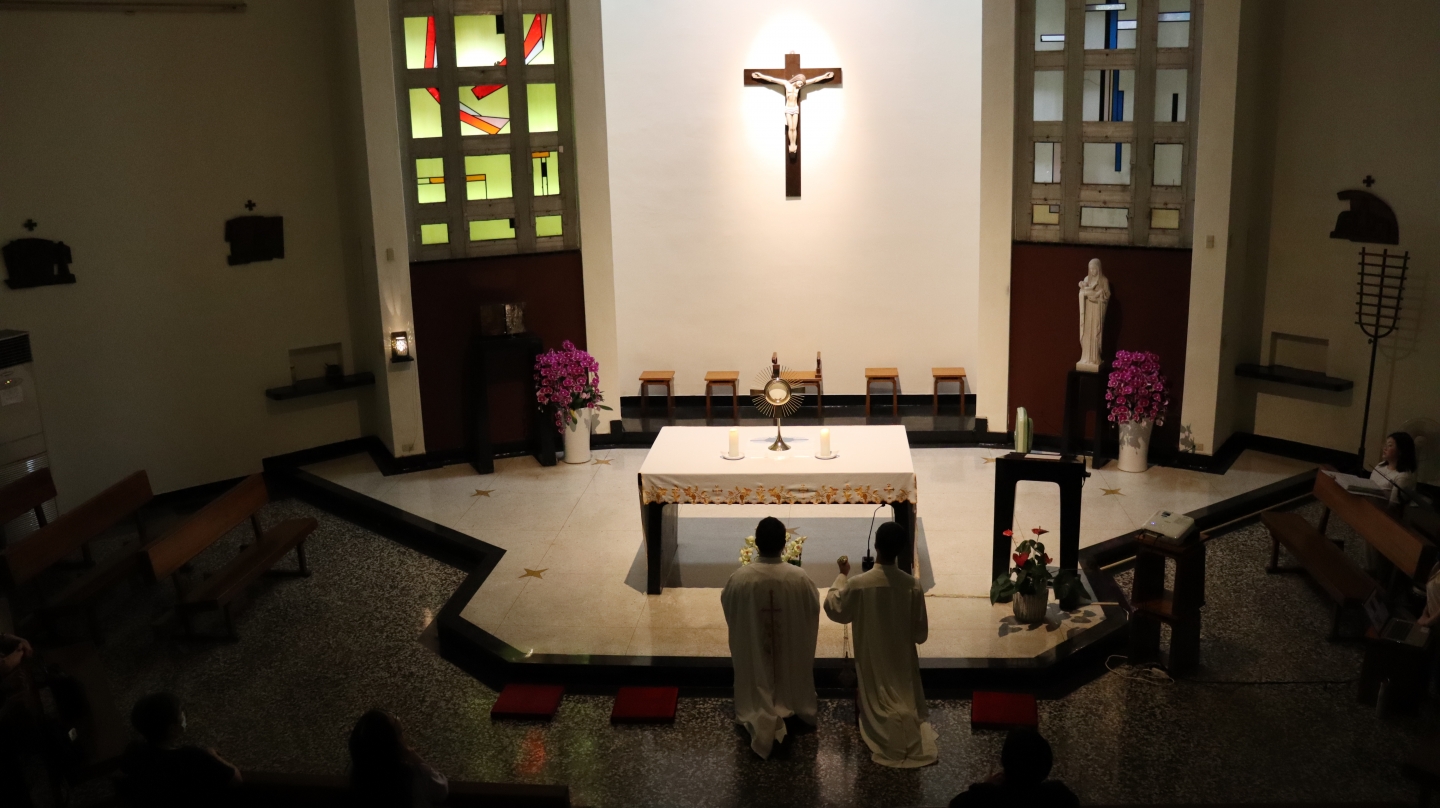
Fr. De Ridder also emphasized that prayer is about putting God first, committing to give enough time to be with God, allowing God to love us, affirming and enjoying this relationship, being willing to be transformed and changed by Him, and surrendering more and more to God.
In the afternoon session of the workshop, the organizer specially planned the “Silent Prayer” and “Chanting Prayer” experiences, starting with the “Adoration of the Blessed Sacrament” led by the Tabor Youth Group. Tabor Youth Group is an inter-parish international Catholic spiritual and evangelization youth group comprised of young people between the ages of 18 and 35. On June 1, during the workshop, seven members of Tabor Youth Group accompanied all participants to worship and praise God in the Blessed Sacrament in the seminary chapel for about an hour, and let us gaze at the Lord Jesus, enjoying the sweetness of communion with Him in silence.
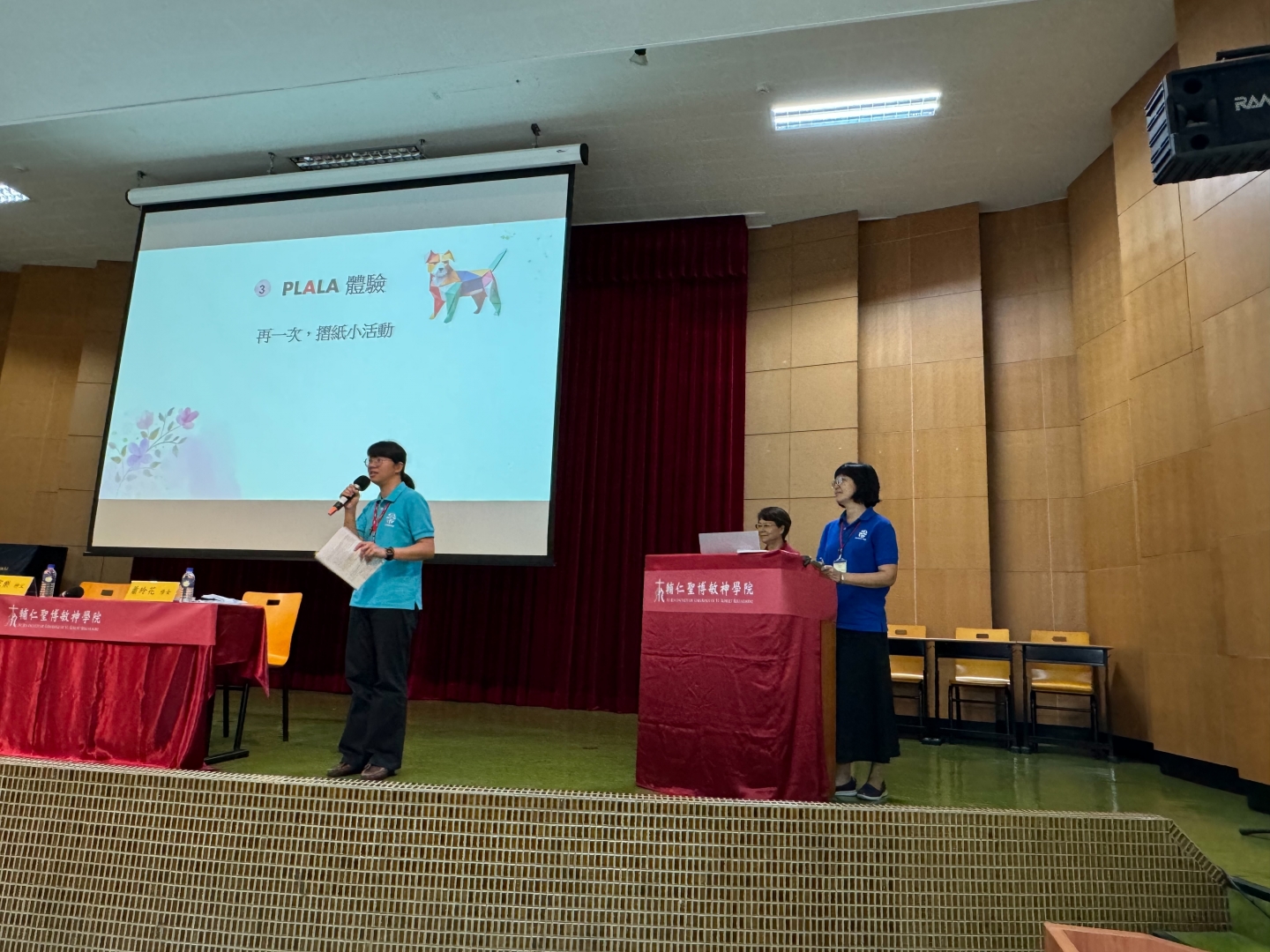 The second prayer experience was led by Sr. Elaine Seow (蕭玲花修女), a member of Verbum Dei Missionary Fraternity and a formator of the “School of the Apostles of the Lord's Word” 「主言使徒學校」. She led the “Prayer of the Word - From Words to Encounter”.
The second prayer experience was led by Sr. Elaine Seow (蕭玲花修女), a member of Verbum Dei Missionary Fraternity and a formator of the “School of the Apostles of the Lord's Word” 「主言使徒學校」. She led the “Prayer of the Word - From Words to Encounter”. In addition to guiding the participants to meditate the Bible in silence, so that the Bible - the Word of God - becomes the medium of unity between human beings and God, Sr. Elaine also mentioned that “prayer restores our longing to be with the Lord, to listen to Him and to worship Him”.
There are many ways to pray, and the Verbum Dei Missionary Family has a set of prayers that can help us to learn how to build a close relationship with God through the prayer of the Word. Sr. Seow and the Apostles of the Word explained through many practical personal experiences how “PLALA” breaks down the “Prayer of the Word” into five steps:
 - P (preparing) preparing the soil/heart,
- P (preparing) preparing the soil/heart,- L (listening) listening to the Word,
- A (assimilating) to chew the Word,
- L (living) to live the Word and
- A (announcing) to share the Word.
Sr. Seow said that through such a set of exercises, the leaven of the Word can ferment in our lives so that we can truly live out the Kingdom of Heaven.
Sister Elaine also emphasized that in order to help us maximize the benefits of “PLALA”, we can practice asking ourselves the following questions to help us build a more sincere relationship with the Lord:
1. Am I used to preparing my heart?
2. Do I know how to listen to others? Or do I always rush to correct others and take a stand when I hear a misunderstanding or disagreement?
3. Do I take God's invitation seriously? Or do I tend to live my life according to my own habits?
4. Am I willing to take time away from praying with the Word? Am I willing to practice talking to the Word diligently?
This hour-long “Prayer of the Word” experience allowed participants to deeply feel the guidance of the Holy Spirit. Sister Seow wished all a rich prayer life full of the Word and the Holy Spirit.
Sister Elaine also emphasized that in order to help us maximize the benefits of “PLALA”, we can practice asking ourselves the following questions to help us build a more sincere relationship with the Lord:
1. Am I used to preparing my heart?
2. Do I know how to listen to others? Or do I always rush to correct others and take a stand when I hear a misunderstanding or disagreement?
3. Do I take God's invitation seriously? Or do I tend to live my life according to my own habits?
4. Am I willing to take time away from praying with the Word? Am I willing to practice talking to the Word diligently?
This hour-long “Prayer of the Word” experience allowed participants to deeply feel the guidance of the Holy Spirit. Sister Seow wished all a rich prayer life full of the Word and the Holy Spirit.
As the focus of the workshop was to give participants the opportunity to reflect, talk and review their own views or perspectives in the small groups. The organizer especially invited six Verbum Dei missionaries to be the facilitators of the small groups sharing, so that all participants could have a deeper understanding of the Year of Prayer through dialogue in the small groups.
In the final comprehensive discussion and conclusion, the speakers answered the participants' questions regarding the Year of Prayer 2024, the preparation for Eucharistic adoration, etc. Sr. Elaine Seow in his response to the participants' questions also introduced the learning space and contents provided by the “School of the Apostles of the Lord’s Word”, including the courses, accompaniment of spiritual and personal growth, retreats, and evangelization internships, etc., all aiming to empower participants to get rooted, grow and flourish in their prayer. Likewise, sr. Andrina Li introduced her new book, “The More Human, The More Divine: A Re-Exploration of Multi-Cosmic Spirituality” (愈有人性, 愈有神性: 再探多重宇宙靈修). This book, she said, is neither Eastern nor Western in its thinking, but rather, it is a cosmic view that transcends East and West, North and South, and that jumps between the virtual and the physical, and integrates the human and the divine, and encourages readers to experience the dance of heaven, earth and human beings in the cosmic breath, as they listen to the cosmic Christ's call to continuous transformation.
In the final comprehensive discussion and conclusion, the speakers answered the participants' questions regarding the Year of Prayer 2024, the preparation for Eucharistic adoration, etc. Sr. Elaine Seow in his response to the participants' questions also introduced the learning space and contents provided by the “School of the Apostles of the Lord’s Word”, including the courses, accompaniment of spiritual and personal growth, retreats, and evangelization internships, etc., all aiming to empower participants to get rooted, grow and flourish in their prayer. Likewise, sr. Andrina Li introduced her new book, “The More Human, The More Divine: A Re-Exploration of Multi-Cosmic Spirituality” (愈有人性, 愈有神性: 再探多重宇宙靈修). This book, she said, is neither Eastern nor Western in its thinking, but rather, it is a cosmic view that transcends East and West, North and South, and that jumps between the virtual and the physical, and integrates the human and the divine, and encourages readers to experience the dance of heaven, earth and human beings in the cosmic breath, as they listen to the cosmic Christ's call to continuous transformation.
Registration for the workshop began in late April and was filled to capacity by mid-May, with as many as 100 participants. The organizers, Fu Jen St. Robert Bellarmine Seminary, and Chinese Ferdinand Verbiest Cultural Exchange Association, and the co-organizer, the AMRSMW Integral Human Development commission, are very grateful for the enthusiastic participation, and also for the wonderful presentations of the speakers and the sharing of their prayer experiences by the “Apostles of the Lord’s Word” and “Tabor Youth Group”, which helped to bring the 6th Spirituality of Dialogue Workshop to a successful conclusion. For the organizers the richness that came out of this workshop is an important stepping stone in the way to the jubilee, because, as Pope Francis said on November 11, 2023, when he met with those who serve in the Vatican’s pilgrimage sites: 2024 is the Year of Prayer, and we all are urged to commit to prayer in preparation for the Jubilee Year of 2025.
